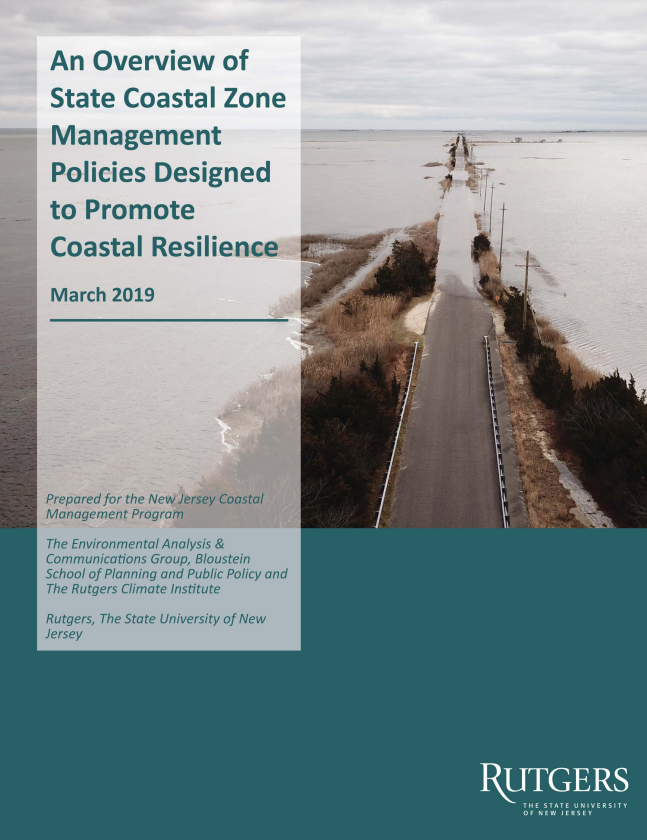The New Jersey Coastal Management Program (NJCMP), housed at the state Department of Environmental Protection, engaged the Rutgers University Bloustein School of Planning and Public Policy and the Rutgers Climate Institute to review science-informed sea-level rise programs and policies in the following fifteen states:
- California
- Connecticut
- Delaware
- Florida
- Hawaii
- Louisiana
- Maine
- Maryland
- Massachusetts
- New York
- Oregon
- Rhode Island
- Texas
- Virginia
- Washington
While, this report is not intended to provide an exhaustive inventory of all state resilience activities, it does provide a summary of state policy options for incorporating scienceinformed sea-level rise science into policy, along with illustrative examples of policy implementation.
Overall, the Rutgers Team found that all fifteen of the case study states have significant efforts underway with regard to sea-level rise. The nature of these efforts may vary, including development of sea-level rise science, adoption of public policies, guidance and technical assistance, and development of decision-support tools. Experiences of the states included in this study point to overarching leadership at the senior levels of government as an essential element of advancing
